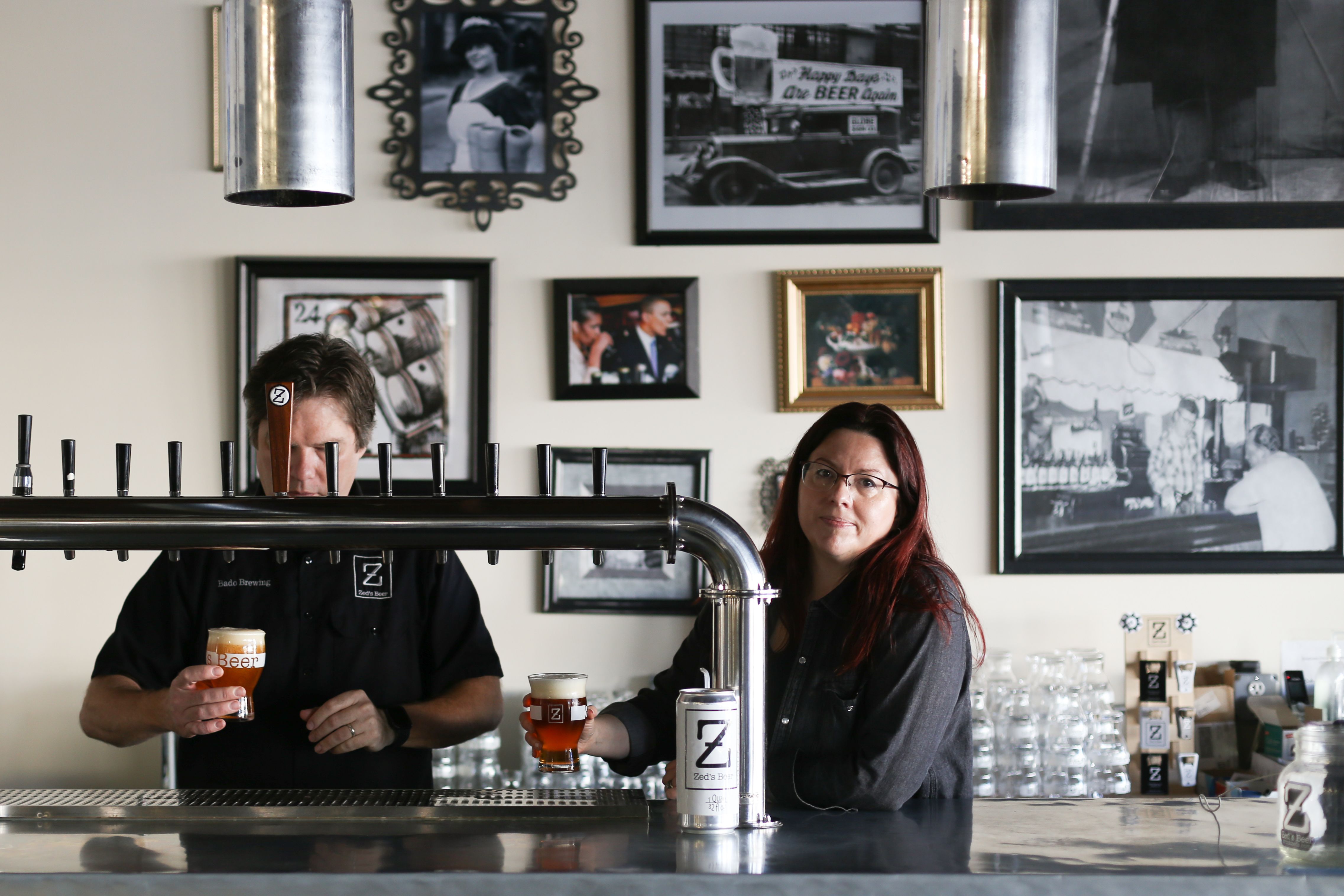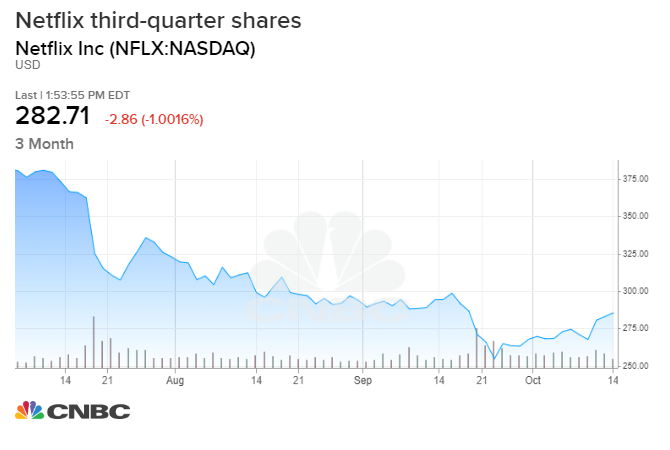
Geoff Bado and Lori White at their brewery, Zed’s Beer, in October of 2019.
Tucker Higgins for CNBC
MARLTON, N.J. — Like craft breweries around the country, Lori White’s business is all about being local. But an upcoming Supreme Court case over water pollution in Maui has shifted her focus about 5,000 miles west.
The case, to be argued early next month, was brought by environmentalists who are opposed to what they see as the Trump administration attempting to defang the nation’s clean water regulations and reverse decades of precedent.
On its face, the case has nothing to do with beer. But a decision could have substantial consequences on the power of the Clean Water Act, a landmark federal law signed in 1972 that has scrubbed the nation’s waterways of pollution.
“Our industry is so focused on local, local, local,” White said recently from the taproom of Zed’s Beer, the business she co-founded in 2015. “But really, we are part of the bigger dynamic. It does impact us. What they decide to do impacts all of us.”
White and her business partner Geoff Bado are among the signers of a friend-of-the-court brief submitted to the justices over the summer by 60 breweries concerned that the case could harm their water supply.
Their brewery, which produces just 1,000 gallons of beer per year, could face prohibitive costs if it was required to add new filtration and testing systems as a result of polluted water, they said.
The brief points out what might be obvious: “Beer is mostly water.”
Even if it’s obvious, it’s still important, the brewers say. The quality and consistency of their water is the key to their $76.2 billion industry. And small changes matter.
Too many sulfates? The beer will taste acidic. Chlorine? The beer will taste like aspirin. Bacteria will spoil a whole batch, and smaller changes in the water can change the beer’s foam pattern and shelf life.
That medicine flavor, Bado said, is particularly hard to eliminate.
The brewers have weighed in on the case because they believe a win for Maui could make it easier for big businesses to pollute the nation’s rivers and streams. While dirty water has an impact on many sectors, such as outdoor recreation and seafood, the brewers have stood up to argue that their slice of the economy could be particularly hard hit.
“It’s all about the water,” said Louis Jeroslow, head brewer at North Carolina brewery Angry Troll Brewing, which signed onto the Supreme Court brief. “What simplifies things for an industrial producer to put sludge in the ground and our waterways and not get a permit affects everyone else who deals with the water. It’s really just kicking the can down the road.”
Sewage, permits and Maui
The facts of the case concern Maui’s Lahaina Wastewater Reclamation Facility. The facility treats millions of gallons of sewage each day, and injects the treated waste into wells that pump it deep underground.
The sewage then travels into the Pacific Ocean, where it is released in quantities that are roughly the same as what would be produced by a “permanently-running garden hose at every meter along the 800 meters of coastline,” as one federal court put it.
An attorney for Maui declined to comment.
The key legal question is whether it matters that the plant does not directly spew waste into the ocean, but instead delivers it indirectly, via groundwater.
Generally speaking, the Clean Water Act requires companies to get federal permits if they discharge pollutants into navigable waters, which includes the ocean but does not include groundwater.
Maui has argued that because its wastewater enters the ocean only indirectly, no federal permit is required by law. Along with attorneys for the Trump administration and business groups, Maui has said that requiring a federal permit to pollute groundwater would vastly extend the reach of U.S. regulators. The matter is much better left to state regulators, they have argued in court papers.
“All fifty states exercise broad police powers to protect their groundwater from pollution,” wrote Aaron Streett, chair of Texas-based law firm Baker Botts’ Supreme Court and Constitutional Law Practice, in a brief submitted on behalf of the Chamber of Commerce.
Louis Jeroslow at Angry Troll Brewing in Elkin, North Carolina, where he is head brewer. “What simplifies things for an industrial producer to put sludge in the ground and our waterways and not get a permit affects everyone else who deals with the water,” Jeroslow said.
Angry Troll Brewing
The EPA seemed to endorse that interpretation in April, finding that no federal permit is needed if pollution comes through groundwater. The environmentalists and the brewers say that marked a reversal of the agency’s prior analysis under both Republican and Democratic administrations.
Federal courts have divided over whether this type of indirect pollution requires a federal permit, but Maui has so far lost its battles. A three-judge panel of the 9th U.S. Circuit Court of Appeals wrote that the pollutants were “fairly traceable” from the plant to the ocean, “such that the discharge was the functional equivalent” of releasing the waste straight into the water.
‘Water is the backbone of beer’
Ahead of arguments, it is not clear how the justices will come down in the case, though the court’s conservative majority suggests that the environmentalists face an uphill battle. A decision is expected by the end of June.
David Henkin, an attorney for Earthjustice who is representing the environmental groups’ challenge, said that if the Supreme Court adopts Maui’s position in the case, it could set enforcement of the Clean Water Act backward by decades.
“You can imagine that, if all a polluter needs to do to get out of the Clean Water Act is to pull its pipe five feet back from a river or lake, then it can dump as many pollutants as it wants without any permit or oversight, that would be absolutely devastating to our nation’s waters,” Henkin said.
The beer-makers say that outcome could put some of them out of business. Like other sectors of the economy dominated by small businesses, “the craft brewing industry largely grew up with the Clean Water Act,” the brewers wrote in their brief.
“It has since grown at an extraordinary rate — in part because American craft brewers can rely upon a clean water supply,” they wrote.
To be sure, not all small businesses are on the same page. The National Federation of Independent Business Small Business Legal Center filed a brief supporting Maui, arguing that the 9th Circuit’s decision could be harmful to small business landowners like farmers and ranchers.
But the footprint of the craft beer industry is substantial. There are about 7,300 craft breweries in the United States, and the industry employees more than 150,000 people, according to the Brewers Association, a trade group. The sector grew by 4% last year while the broader beer industry contracted, the association reported.
Jeroslow said that on top of the added cost for filtration and testing that unpredictable, polluted waters could bring, it would also diminish the intrinsic appeal of the beverage.
“The most local aspect you can say of a beer, including the grains or the hops, is the water. Water is the backbone of beer,” Jeroslow said.
Indeed, natural differences in the water profiles of places like Ireland and Germany have produced different types of beer that are familiar to most drinkers. In Germany, where the water is more acidic, lighter beers are favored, like lagers. In Ireland, the water is less acidic, which is perfect for making stouts.
Similarly, in different parts of the U.S., different water types produce different types of local beers. But, if that water was polluted, breweries would be forced to effectively “rebuild,” it, filtering it down to nothing, then adding in salts and other minerals, Jeroslow said. In effect, local beer would be less local.
On another level, Jeroslow added, polluted rivers and streams would damage the brand of craft beer nationally. It’s no coincidence, he said, that breweries are most popular in parts of the country that are naturally beautiful.
“You think about mountains and streams and rivers, and the water is a critical part of the story of the beer, and the brand, and your experience when you’re drinking,” he said. “When you enjoy one of those beverages, the wine or the beer, you’re mentally transporting yourself to the place where it came from, and you are picturing pristine water ways, not sludge filled oil slicks.”

